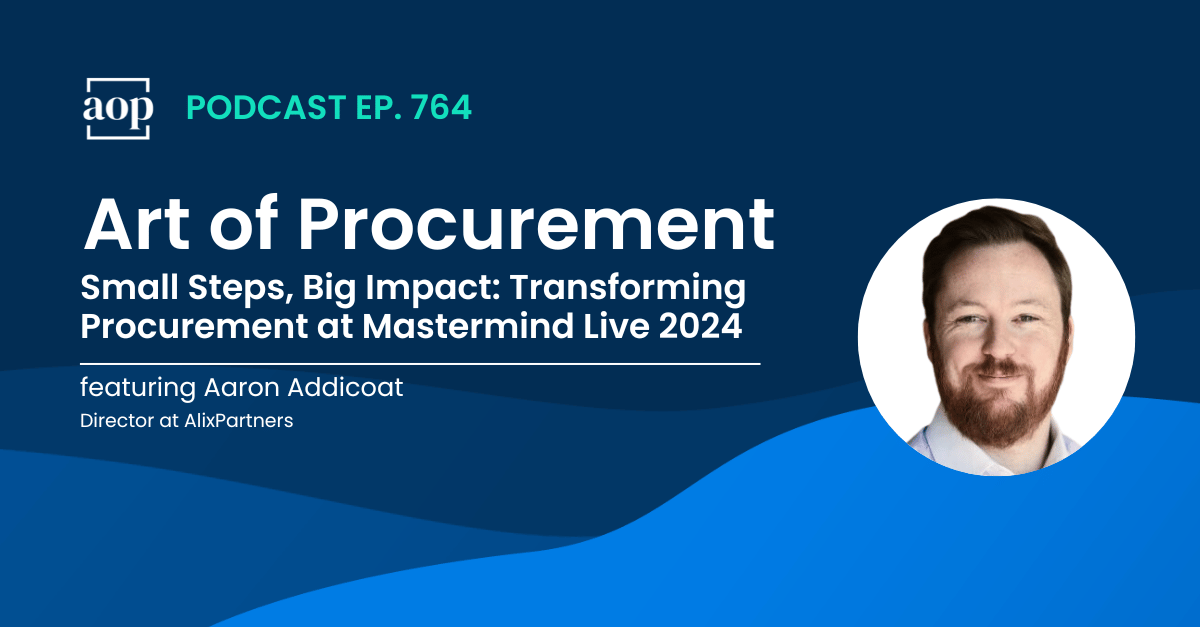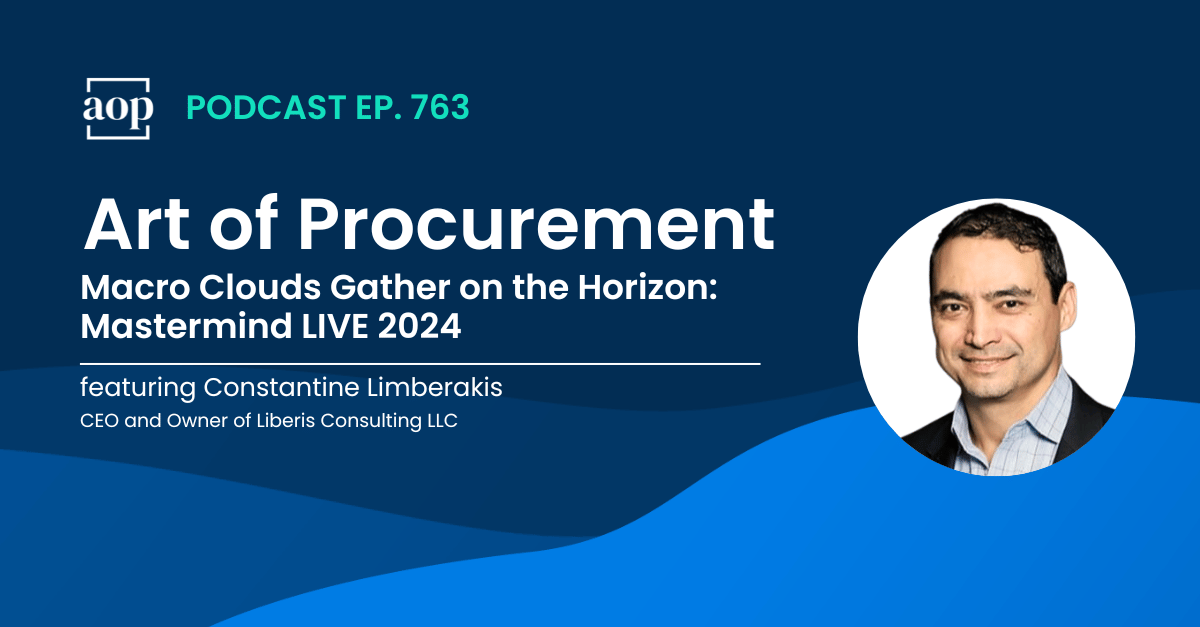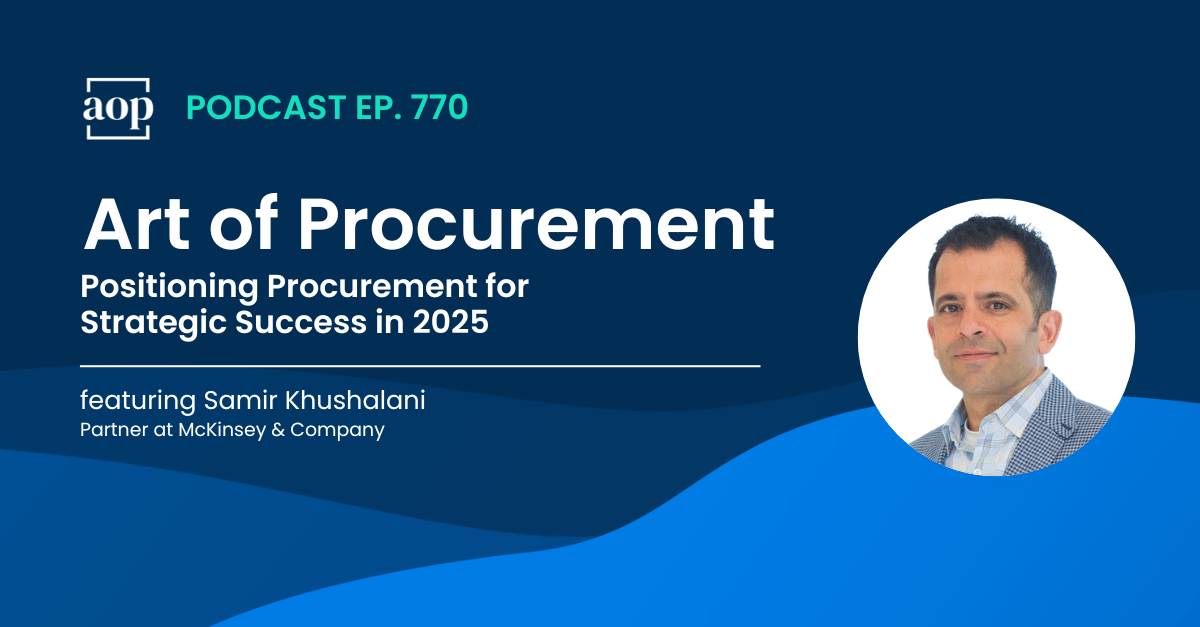3 min read
Small Steps, Big Impact: Transforming Procurement at Mastermind Live 2024
Philip Ideson : December 29, 2024

“I think there is an element of mastering your own destiny, a sense of showing up and being engaged in the conversation about what the change should be and the nature and how you do it.” - Aaron Addicoat, Director at AlixPartners
To quote Charles Darwin, “It is not the strongest of the species that survives, not the most intelligent that survives. It is the one that is the most adaptable to change.” While the famous scientist was originally referring to nature, that phrase applies to procurement as well.
The procurement community is full of intelligent, creative people who can take new challenges in stride, but it doesn’t hurt to see what your peers are doing. That’s why we hosted Mastermind Live 2024, to give procurement professionals a chance to hear insights and advice from our featured speakers.
In one session, Kelly Barner spoke with Aaron Addicoat to examine the ways procurement can adapt their operating model to achieve business objectives - and do so with the right attitude.
Boasting more than 20 years of procurement experience, Aaron Addicoat is a Director at AlixPartners. With previous roles at Deloitte, EADS, and Airbus, his passion for procurement stems from getting to work with a bit of everything as he fights for the underdog.
As Kelly and Aaron explored the ways procurement needs to reexamine their operating models and approach change with an open mind, a few key points stood out in the conversation.
Operating Models Encompass a Lot
Procurement operating models end up becoming the framework that helps your team achieve a number of different outcomes. To Aaron, the success or failure of your operating model hinges on understanding everything that goes into it.
“For me, procurement operating models are all of the layers. It's your mission. It’s the governance and how you engage stakeholders. It's the talent. It’s the capabilities you develop within, the process and technology combined. It’s the data and analytics. All of that, how that’s structured, connected, and configured, is what I would talk about as the operating model.”
Awareness Today Enables Change Tomorrow
When it comes to adapting and reconfiguring an operating model, the one constant is change. Business situations are changing, goals are evolving, and that impacts what procurement needs to do to achieve their goals. According to Aaron, when it comes to operating models, “there are always things you can be doing. What’s important is that you stay aware of how your operating model is configured today.”
Procurement will always have finite resources, but “how we're spending those resources, where those resources are spending their time, and which resources are spending their time on which things is something you can always be tweaking and adapting.”
In some cases, procurement will find that they’re spending too much time or too many resources on items that don't deliver enough value. Having the awareness to examine current happenings allows them to adjust operating models and pivot to focus on activities or suppliers that deliver better ROI.
Procurement’s Attitude Toward Change Impacts Their Actions
To Kelly’s point, “It actually requires a lot of courage to make that kind of choice. I think sometimes stopping doing something is more strategic than starting to do something else.”
Human beings don’t always love change. Aaron believes that procurement can combat that resistance through engagement and a specific mindset.
“It's more how you decide to show up and interface with [change] and embrace it or not. I think there is an element of mastering your own destiny, a sense of showing up and being engaged in the conversation about what the change should be and the nature and how you do it.”
Listening and Forethought are Key to Driving Change
While nobody is coming directly to procurement suggesting they adjust their operating models, they often get feedback that can influence the changes they make.
“The most important thing is listening,” claims Aaron. “Listening and having your senses out there–what's going on is what it almost always somehow will come back to some element of the operating model as we defined it before.”
Upon hearing the different bits of feedback from other departments, it then comes down to having the forethought to think about what changes will be necessary moving forward.
While the way that procurement approaches change can be situational, they need to ask the right questions as they plan. How strategic is the change? How long will it take to achieve? Is it something that needs to be done internally, or can you get an external partner? Procurement needs to answer these questions before they can take action.
Procurement Must Remember the User Experience
As procurement works to build business engagement with suppliers, they must keep the customer’s perspective at the core of their actions.
“You've got to put yourself in the mind of the customer, right? In terms of, I want to go buy something. I want to do that efficiently and effectively. Now, it's a little different because it's not our money we're spending. It's somebody else's money. We shouldn't forget, and we need to do that diligently. At the same time, there are ways that we can make that process so much more efficient and smooth,” says Aaron.
While it will require work to achieve a more efficient buying process, there’s merit in having the courage to make changes that will create better business outcomes and a better user experience.
Hear everything Kelly and Aaron discussed during their Mastermind Live season. Watch the full recap here.
Subscribe to Art of Procurement
Apple | Stitcher | iHeart Radio | Email
Links & Resources
- Aaron Addicoat on LinkedIn
- Watch on demand: Mastermind LIVE 2024
- Listen to Deloitte’s 2023 CPO Survey with Aaron
- Subscribe to This Week in Procurement
- Subscribe to Art of Procurement on YouTube


.png)

